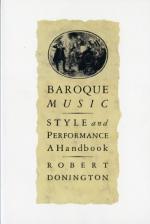|
This section contains 4,725 words (approx. 16 pages at 300 words per page) |

|
Isaac Newton and the Confirmation of the Case for Science.
Isaac Newton (1642–1727) was the first universally recognized scientific genius. In his Philosophiae Naturalis Principia Mathematica (Mathematical Principles of Natural Philosophy), better known as the Principia (1687), he provided the mathematical demonstration necessary to prove his theory of gravity, and in doing so also lent irrefutable support to the Copernican thesis that the earth revolved around the sun. Beyond the Principia, Newton was also the discoverer (along with Gottfried Wilhelm Leibniz) of differential calculus, as well as the physical properties of light. He also invented the reflecting telescope. It was Newton who opened up the universe to scientific investigation by insisting that the physical laws that operate on Earth must also operate everywhere else, and that to discover what works on Earth is to discover what works in the universe...
|
This section contains 4,725 words (approx. 16 pages at 300 words per page) |

|




